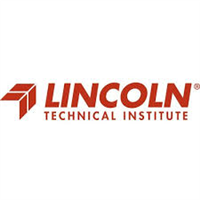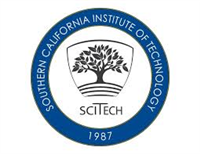What do they do?
Directly supervise and coordinate activities of construction or extraction workers.
Also known as:
Coal Mine Production Foreman, Concrete Foreman, Construction Foreman, Construction Supervisor, Electrical Foreman, Electrical Supervisor, Field Operations Supervisor, Field Supervisor, Insulation Foreman, Masonry Supervisor, Pit Supervisor, Roustabout Field Supervisor, Sheet Metal Foreman, Site Superintendent
-
2.4%
Change
Ranks #48 in job growth rate1,740Job Openings
Ranks #18 in net job growth
Colleges with the most graduates that become First-Line Supervisors of Construction Trades and Extraction Workers
Looking for colleges that offer a specific major? Use the College Match Tool to find your best-matched schools and discover your estimated Net Price!
- High school diploma equivalent (44%)
- Some college, no degree (22%)
- Less than high school diploma (17%)
- Bachelor's degree (8%)
- Associate's degree (7%)
- Master's degree (1%)
- Doctorate or Professional Degree (<1%)
People in this career often have these skills:
- Coordination - Adjusting actions in relation to others' actions.
- Active Listening - Giving full attention to what other people are saying, taking time to understand the points being made, asking questions as appropriate, and not interrupting at inappropriate times.
- Speaking - Talking to others to convey information effectively.
- Critical Thinking - Using logic and reasoning to identify the strengths and weaknesses of alternative solutions, conclusions, or approaches to problems.
- Management of Personnel Resources - Motivating, developing, and directing people as they work, identifying the best people for the job.
- Reading Comprehension - Understanding written sentences and paragraphs in work-related documents.
- Monitoring - Monitoring/Assessing performance of yourself, other individuals, or organizations to make improvements or take corrective action.
- Time Management - Managing one's own time and the time of others.
People in this career often know a lot about:
- Administration and Management - Knowledge of business and management principles involved in strategic planning, resource allocation, human resources modeling, leadership technique, production methods, and coordination of people and resources.
- Building and Construction - Knowledge of materials, methods, and the tools involved in the construction or repair of houses, buildings, or other structures such as highways and roads.
- Mechanical - Knowledge of machines and tools, including their designs, uses, repair, and maintenance.
- Customer and Personal Service - Knowledge of principles and processes for providing customer and personal services. This includes customer needs assessment, meeting quality standards for services, and evaluation of customer satisfaction.
- English Language - Knowledge of the structure and content of the English language including the meaning and spelling of words, rules of composition, and grammar.
- Design - Knowledge of design techniques, tools, and principles involved in production of precision technical plans, blueprints, drawings, and models.
- Public Safety and Security - Knowledge of relevant equipment, policies, procedures, and strategies to promote effective local, state, or national security operations for the protection of people, data, property, and institutions.
People in this career often have talent in:
- Oral Comprehension - The ability to listen to and understand information and ideas presented through spoken words and sentences.
- Oral Expression - The ability to communicate information and ideas in speaking so others will understand.
- Problem Sensitivity - The ability to tell when something is wrong or is likely to go wrong. It does not involve solving the problem, only recognizing that there is a problem.
- Information Ordering - The ability to arrange things or actions in a certain order or pattern according to a specific rule or set of rules (e.g., patterns of numbers, letters, words, pictures, mathematical operations).
- Near Vision - The ability to see details at close range (within a few feet of the observer).
- Deductive Reasoning - The ability to apply general rules to specific problems to produce answers that make sense.
People in this career often do these activities:
- Monitor construction operations.
- Evaluate projects to determine compliance with technical specifications.
- Inspect equipment or tools to be used in construction or excavation.
- Review blueprints or specifications to determine work requirements.
- Direct construction or extraction personnel.
- Coordinate construction project activities.
- Estimate materials requirements for projects.
- Estimate construction project labor requirements.
- Order construction or extraction materials or equipment.
- Train construction or extraction personnel.
- Measure work site dimensions.
- Mark reference points on construction materials.
- Communicate with other construction or extraction personnel to discuss project details.
- Assist skilled construction or extraction personnel.
- Record operational or environmental data.
This page includes data from:

 Occupation statistics: USDOL U.S. Bureau of Labor Statistics Occupational Employment Statistics
Occupation statistics: USDOL U.S. Bureau of Labor Statistics Occupational Employment Statistics
 Videos: CareerOneStop, USDOL/ETA and the Minnesota Department of Employment & Economic Development
Videos: CareerOneStop, USDOL/ETA and the Minnesota Department of Employment & Economic Development













